In addition to Weibo, there is also WeChat
Please pay attention

WeChat public account
AutoBeta


2024-11-17 Update From: AutoBeta autobeta NAV: AutoBeta > News >
Share
AutoBeta(AutoBeta.net)09/10 Report--
Hino Motor, a subsidiary of Japan's Toyota Motor Group, will completely stop production of related models for Japan's domestic market for as long as next summer because of a scandal over engine test data violations, according to Japanese media and CCTV financial reports. In response, the head of the public relations department of Hino Motor said: "it is impossible to determine when production can be resumed."
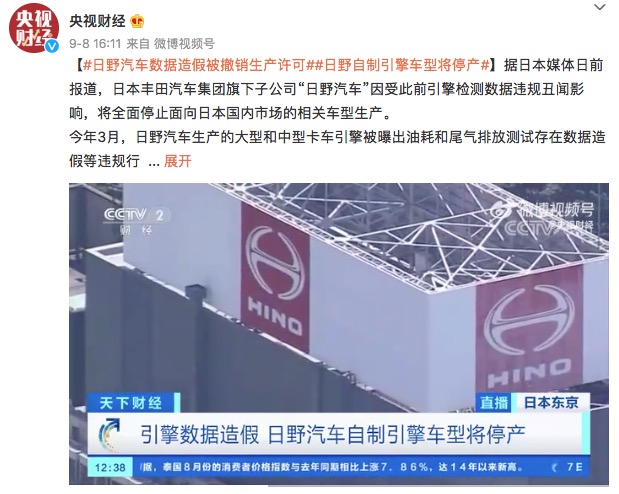
On Aug. 22, Hino posted on its website that the engine of one of its light trucks did not meet the emission testing requirements, so it would suspend delivery of the Dutro series of small trucks, after Hino's large and medium-sized truck engines had been exposed to falsification of fuel consumption and emission data.
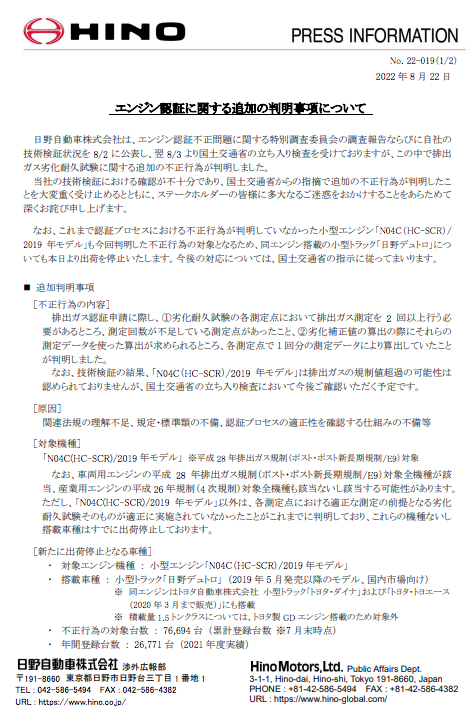
Hino Motor, a subsidiary of Toyota, also directly affected Toyota by its improper behavior, after Toyota President Akio Toyoda said that Hino's move had seriously affected Toyota's reputation. On September 9, Hino parent company Toyota announced on its website that Toyota admitted that the Ministry of Land and Transportation had issued severe administrative sanctions against Hino for a series of improper acts. Toyota will closely monitor Hino "whether it can reinvent itself as a trustworthy company" and will assist Hino in its business at the same time. On Aug. 24, Toyota, the parent company of Hino Motor, announced that it would expel Hino from its commercial vehicle led by Toyota because of the fraud of its emission data. In addition to the loss of reputation, Toyota may also face economic losses. On Aug. 12, Hino Motors posted on its official website that four American companies sued Hino Motors' American subsidiary and Hino's parent company Toyota Motor for damage caused by the falsification of Hino's engine data. and demanded more than $5 million in compensation. Hino Motors pointed out that it may face more similar lawsuits in the future, and it is not possible to estimate the impact of the litigation.
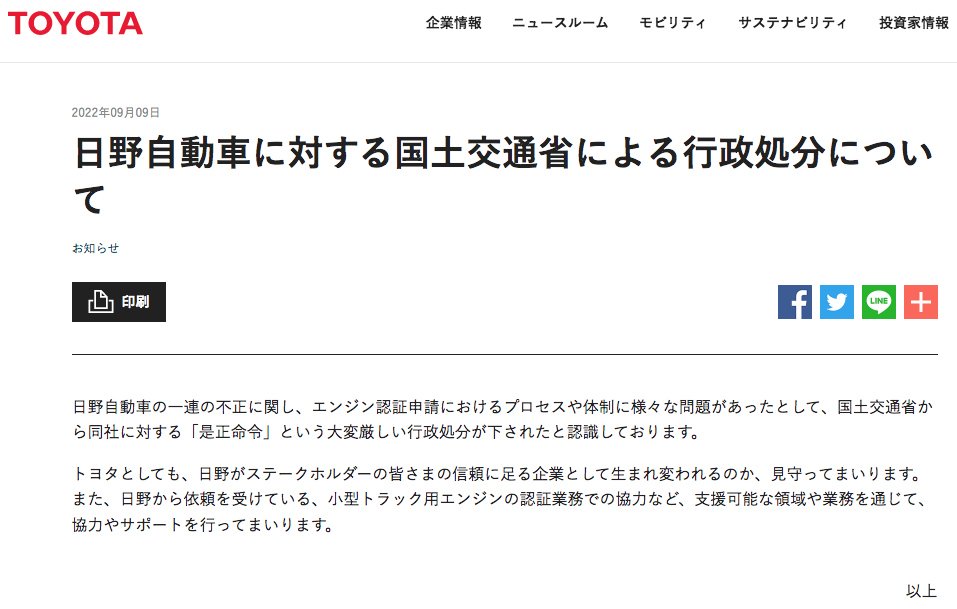
The relationship between Hino Motor and Toyota Motor can be traced back to 2001. Hino Motor, as the largest commercial vehicle manufacturer in Japan, was founded in 1942, mainly engaged in truck and bus commercial products business. Before 1942, Hino and Isuzu were the same company. After 1942, Hino Motor became an independent company and formally used the name Hino (Hino). It began to focus on the manufacture of commercial vehicles in 1950. In 2001, Toyota saw the potential of the commercial vehicle market at that time, and in August of the same year, Toyota invested to acquire Hino (Hino). Hino (Hino) owns a 50.1% stake in Hino (Hino) after it was controlled by Toyota. In September 2002, Hino Motor and Toyota jointly launched Japan's first fuel cell bus FCHV-BUS2.
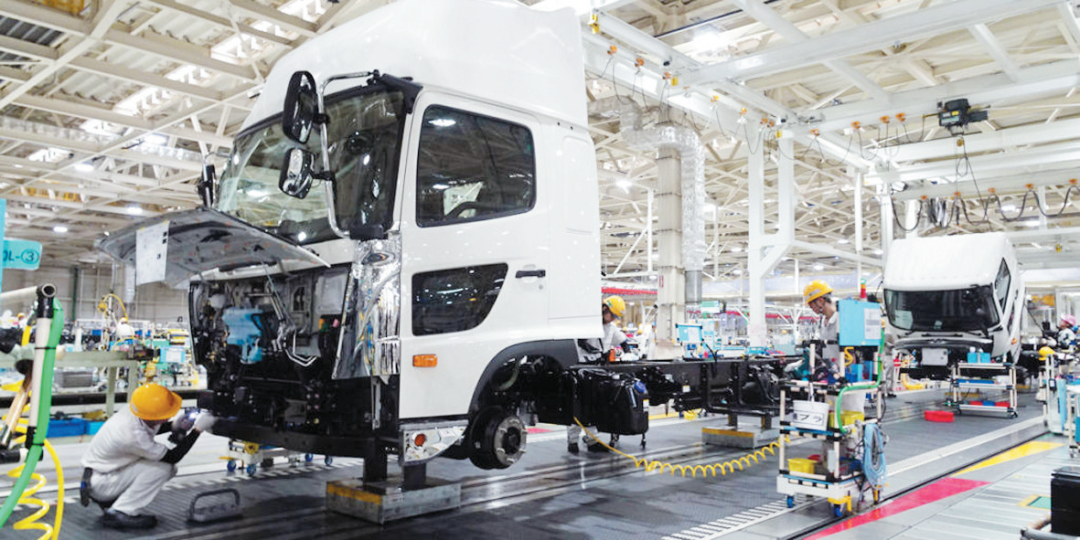
Reviewing the course of the Hino fraud scandal, as early as 2018, Hino Motors found that the vehicle engines shipped to the North American market did not comply with US regulations, and decided to launch an internal investigation into possible violations at the factory. Two years later, Hino admitted that there was a problem with the test process and suspended local truck production in the United States, which did not resume production until last year when it switched to engines from other manufacturers. After that, Hino Motors expanded the scope of the investigation, including engines in Japan's domestic market, and since then, the US Justice Department has also launched an investigation into Hino Motors.
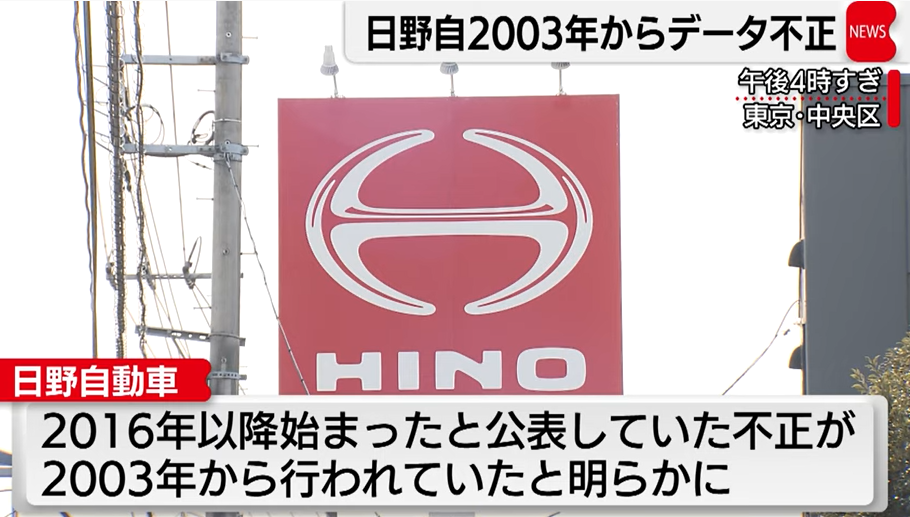
On March 4 this year, Hino admitted to the outside world that engine data had been falsified. Hino Motors said that an internal investigation found that there was a problem of engine data fraud in the factory, which had been going on for many years, affecting as many as 115000 vehicles, nearly twice as many as Hino's annual sales in Japan. As a result, Hino stopped the transportation of medium-and heavy-duty trucks and buses with fake engines, and in its investigation at the time, Hino believed that engine data fraud dates back to 2016. On the 29th of the same month, Japan's Ministry of Transport made a decision to deal with the fraud of data on four engines produced by Toyota's Hino Motor, revoking the production license for related vehicle products equipped with "problem engines."
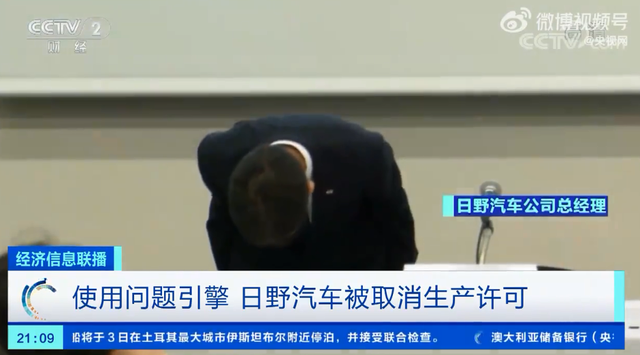
On August 2, Hino officially released the results of the investigation into the fraud, which showed that Hino's wrongdoing included violations related to engine emissions and fuel consumption data, and submitted false reports when Japan's Ministry of Land, Transport and Transportation investigated emissions and fuel consumption data in 2016. Among them, Hino's emission violations began at least around 2003, much earlier than Hino's earlier announcement in 2016, and all kinds of violations lasted at least nearly 20 years. Subsequently, Japan's Ministry of Land and Transport said that in addition to the report of March 4 this year, there was also misconduct in applying for model designation of engines such as trucks and buses produced in the past. Japan's Ministry of Land and Transport asked Hino to recall vehicles with engines that did not meet the emission standards. Hino shares fell nearly 10% on Aug. 2 after the disclosure.
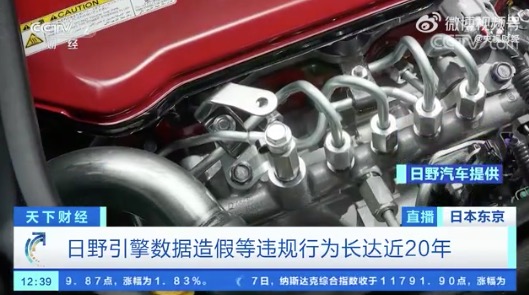
After the incident, Hino Motors in Japan's domestic market has completely stopped shipping models with home-made engines, and from the suspension of shipments to the cessation of production, which means that Hino Motor's operation will undoubtedly be hit hard. Hino's performance was hit hard by the negative news, with data showing that sales of large and medium-sized trucks made by Hino Motor fell by half in its home market. According to Toyota's website, Hino Motor sold 155212 vehicles worldwide in 2021, of which 59935 were sold in Japan. According to the latest financial report of Hino Motors, in the first quarter of fiscal year 2022 (April 1 to June 30, 2022), Hino Motor's operating income was 4.316 billion yen, down 73.3% from the same period last year; its net profit was 723 million yen, down 88.6% from the same period last year. Hino's operating profit fell 73% in the second quarter from a year earlier. With the fermentation of the fraud scandal, the share price of Hino Motors once fell 45% in half a year. Some Japanese media pointed out that Hino Motors is facing a huge life-and-death crisis.
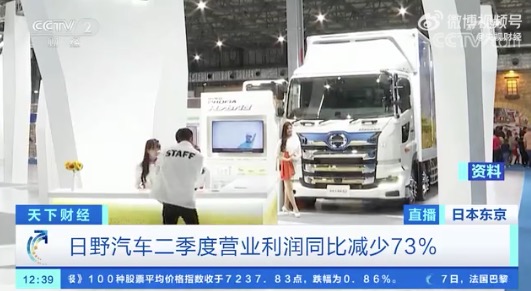
In addition to the impact of Hino itself, Hino related industry chain is also affected. According to CCTV, Hino Motors has about 5000 suppliers in Japan, with an estimated annual turnover of nearly 1 trillion yen (48 billion yuan), of which Hino-related businesses account for more than 30% of sales. CCTV Finance pointed out that the long-term suspension of production by Hino will inevitably affect these suppliers and may even lead to the closure of some enterprises.
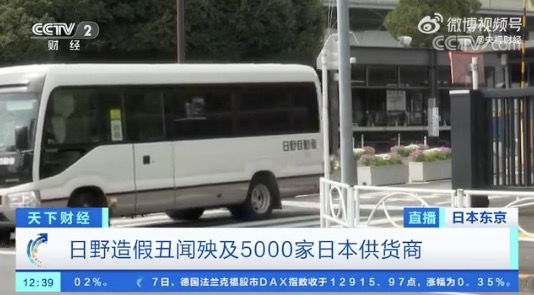
As for the complete suspension of the production of related models for the Japanese domestic market, it is not clear what impact it will have on Hino Motors and the industrial chain. In fact, Hino Motors is not the first car company to have a fraud scandal, including Mitsubishi, Suzuki and other car companies have previously exposed the existence of counterfeiting problems, Japan's Ministry of Land and Transport previously said: "if Japanese automakers cannot solve the problem of counterfeiting, it will be not only individual car companies, but even the ingenious image of Japanese companies, and even the Japanese economy will be affected."
Welcome to subscribe to the WeChat public account "Automotive Industry Focus" to get the first-hand insider information on the automotive industry and talk about things in the automotive circle. Welcome to break the news! WeChat ID autoWechat
Views: 0
*The comments in the above article only represent the author's personal views and do not represent the views and positions of this website. If you have more insights, please feel free to contribute and share.







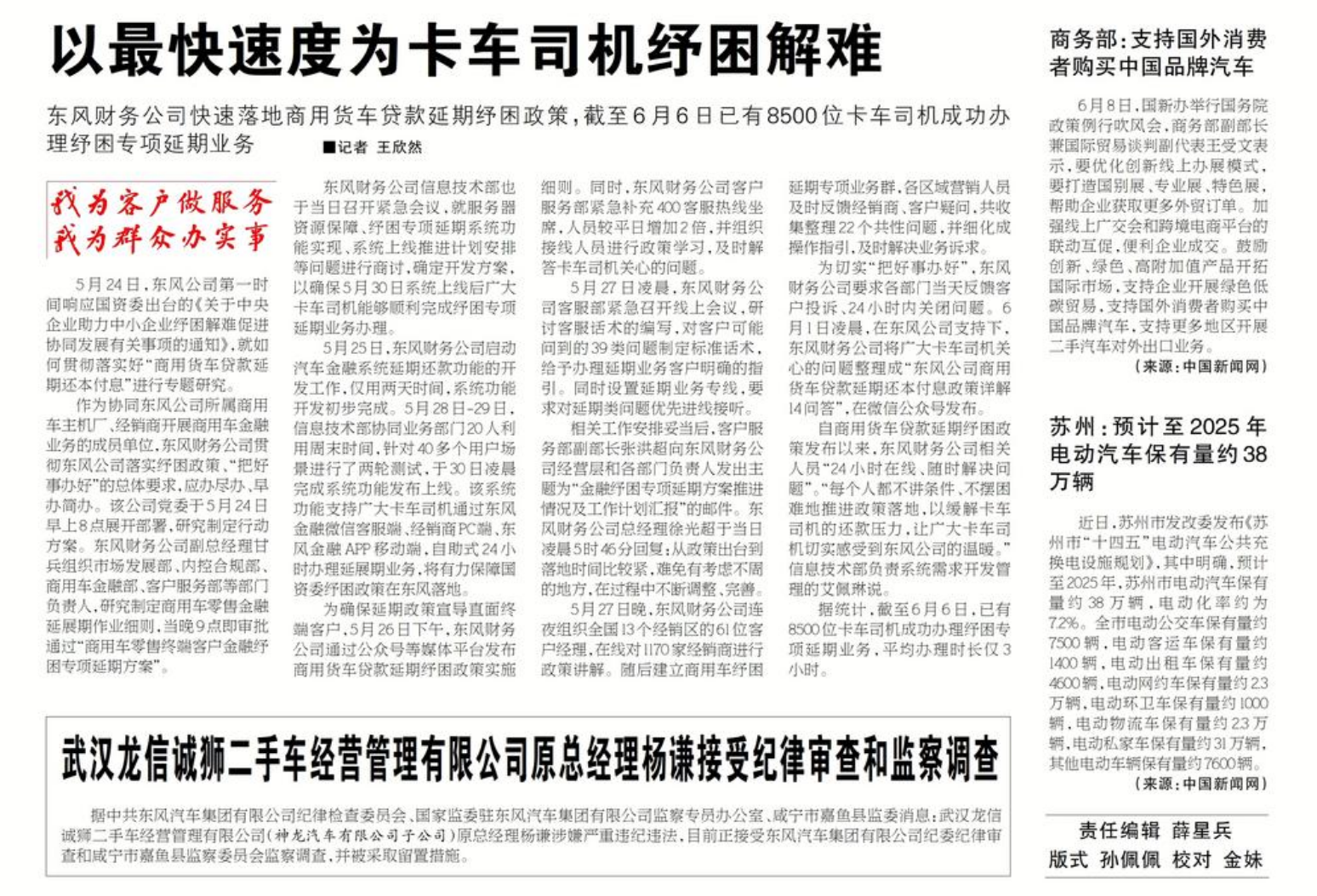

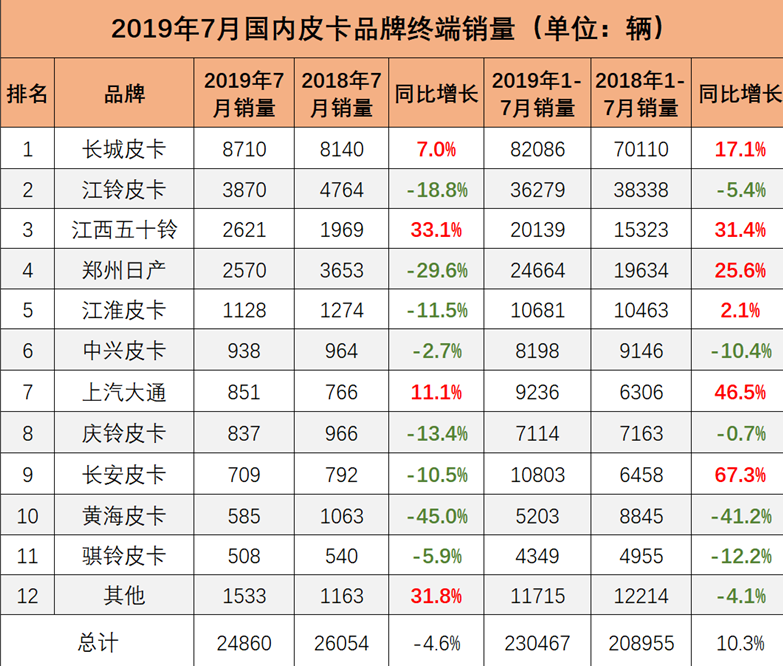

© 2024 AutoBeta.Net Tiger Media Company. All rights reserved.